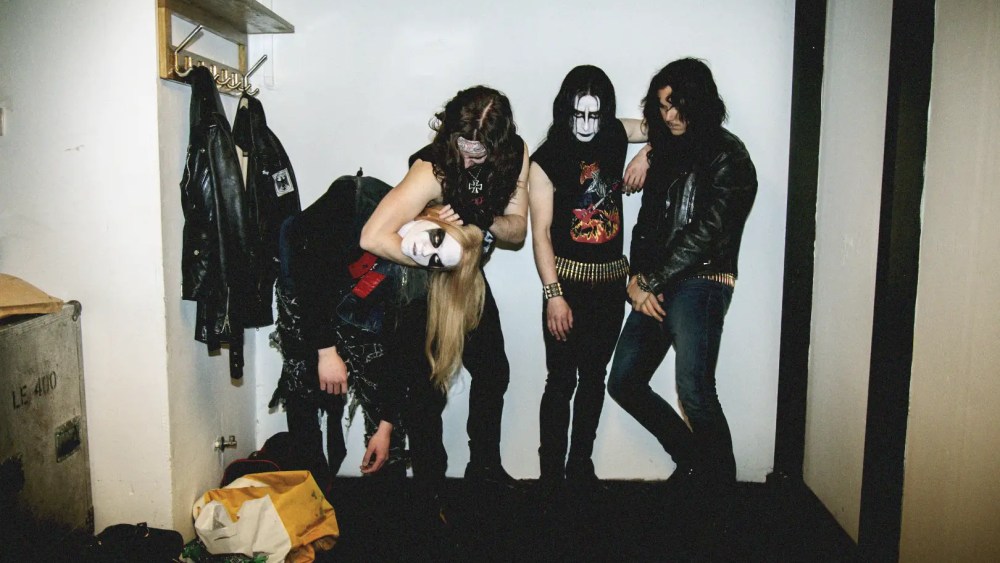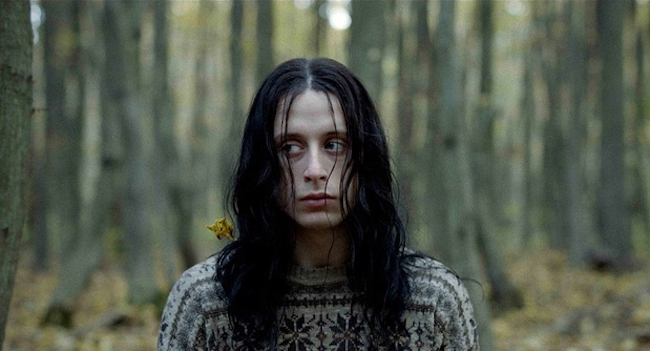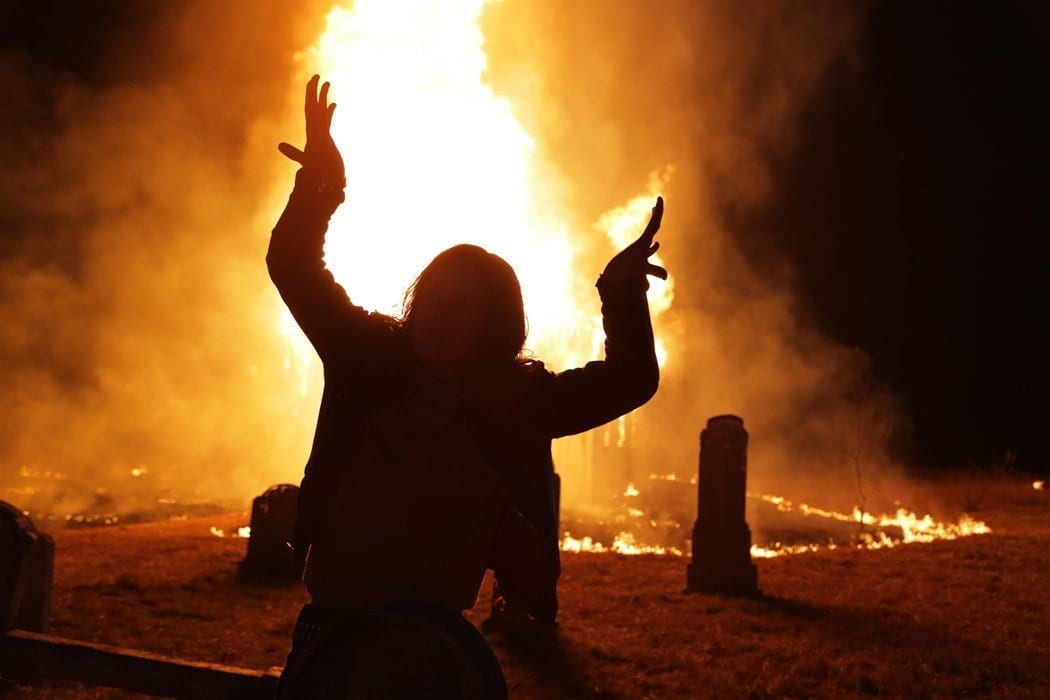Lords of Chaos (2018): True Hollywood Black Metal
Before I get started with this, I want to say that I’ve been wanting to watch this movie for a long time, and that I’m aware that metalheads largely hate the film. I know I’m re-treading territory in this review; people far more experienced and eloquent have already written many hundreds of words about it.
But I’m going to write this anyway, because damn, this movie really pissed me off.

A still from Lords of Chaos featuring the band Mayhem, via DuckDuckGo.
A QUICK SUMMARY
Lords of Chaos (2018) is a ‘biographical horror thriller film’, documenting the origins of Norwegian black metal in the 1990s. It’s based on a book of the same name, and tells the story of a group of musicians known as the ‘Black Circle’, one of whom was eventually murdered by another. The group were allegedly responsible for a series of church burnings, another murder, and some other general depravity.
AMERICANISED? HOLLYWOODIFIED?
Despite being directed and co-written by a Swedish man with extensive experience in the music industry, and who was apparently briefly a member of Bathory, this movie unnervingly feels like a child of Hollywood.
This is probably because it was released in a sudden boom of biopics: Bohemian Rhapsody came out in the same year, and Rocketman in the next. Elvis (2022), I, Tonya (2017), and The Social Network (2010) make up just a few of the others. They’re being made faster than audiences can go and see them – Stardust came out in 2020, documenting and dramatising the life of David Bowie, and I barely saw anybody talking about it.
Despite not suiting the subject matter, Lords of Chaos is mired by an insincere voiceover reminiscent of a teen movie. It doesn’t stand out from the crowd of other films, whose success it is trying to capitalise on. Interestingly, that’s actually a criticism that’s explored as one of the themes of the film: being fake, being a poser, and only being in it for the fame rather than living your truth. Not that I ever want to agree with even a fictionalised version of Varg Vikernes.
This irony goes further: the camerawork is unimaginative. It doesn’t pop in any way, looking the same as most boring digital 2010s films. One dream sequence briefly gave me hope; protagonist Euronymous stands in a quiet forest, haunted by the spectre of a recently-dead friend. But this is soon cheapened by quick cuts between fires and the eyes of crows, a black-and-white filter transforming the genuinely interesting scene into the product of a high school film class. Any atmosphere is immediately and mercilessly shot dead in favour of moving the plot forward.
Stories like this would likely work better as a miniseries, to give it some room to breathe… or maybe we can just leave it as a book. Sometimes, it’s just not worth it. Not everybody needs a biopic.

Euronymous' dream sequence, via DuckDuckGo.
MENTAL ILLNESS AND CHEAP SHOTS
Filters and ‘satanic’ symbols aren’t the only things used for shock value throughout the film. During gory scenes, such as Mayhem frontman Dead’s suicide, the audience is subjected to close-ups of self-harm and other intense violence. This doesn’t feel like a portrayal of reality, exposing people to the truth: it feels like the use of people’s pain for entertainment.
In fact, the entire film doesn’t seem to want to educate or inform its audience at all. It wants to point at metalheads like they’re zoo animals, and that’s truly unsettling. I’m not saying I don’t find it both an interesting and deeply horrifying period of metal’s history, but at least I acknowledge that real people with flaws and mental health issues were involved, rather than just shining a camera onto a community with seemingly no consideration at all.
The entire thesis of the movie seems to be that the Black Circle weren’t really ‘metal’ at all – their actions were out of greed, or irony, or a desire to be liked or considered ‘cool’. The film spends its runtime framing them as posers (or worse, framing all metalheads as fake and insincere), and then turns around and does exactly the same thing it’s accusing them of, using cheap techniques to appeal to its audience’s morbid curiosity.
I’d almost think it was an almost-genius meta-commentary, if I wasn’t so convinced that it wasn’t intentional.
ACCURACY AND REALISM
I’m not an expert on this period of time, on Norwegian culture, or on black metal. I’m not an expert on anything! But for this film to present the idea of criticising the church as something ridiculous, grounded only in faux-Satanic ritual, really rubs me the wrong way. I have no doubt that the Black Circle mostly did what they did out of a general sense of disillusionment, or even boredom, probably reinforced by the fact that nobody around them made them see how awful their actions were. But that doesn’t change the fact that some of their gripes with Christian hegemony were probably very legitimate criticisms – and this is coming from a religious person who is often dismayed by metalheads’ attitudes towards religion as a whole.
I just don’t buy into the idea that none of these people ever really had genuine, original thoughts; that their artistic contributions were secondary or somehow incidental; that none of them were really devoted to anything. Personally, I think Varg Vikernes seems pretty devoted to being a major asshole, truly regardless of self-preservation or image.

A church burns in Lords of Chaos, via DuckDuckGo.
FINAL REMARKS
Ultimately, this movie doesn’t treat anything with respect – not metal, not murder, not mental health. Everything is just to get a gasp out of some poor cinemagoer who had never read about these events before. Artistically uninteresting, politically irreverent (and not in a charming or funny way), and ironically surface-level: you can learn more accurate information from Euronymous’ Wikipedia page.
I hope Lords of Chaos sinks into well-deserved obscurity, in the grave that it dug for itself. There’s nothing more metal than that.

That's all I have to say, I think.